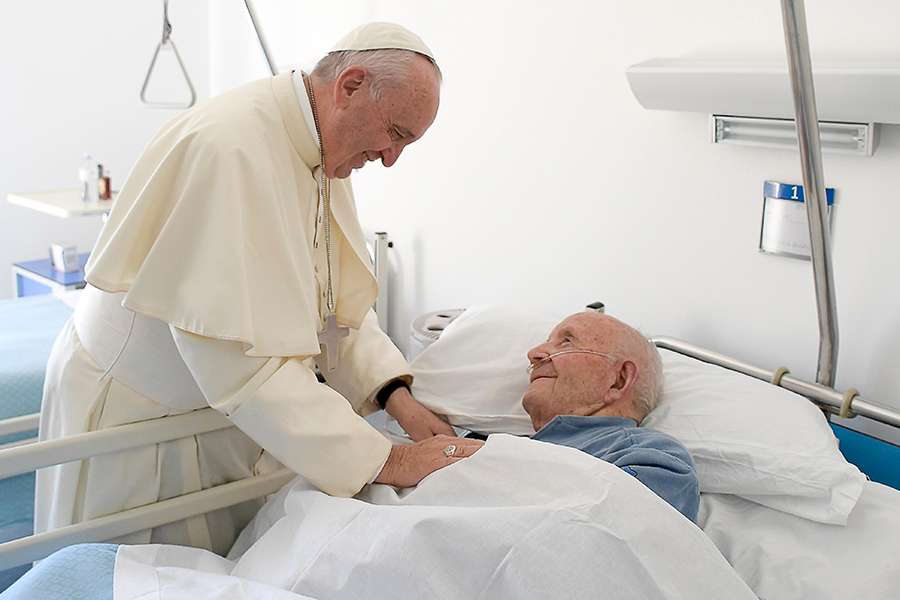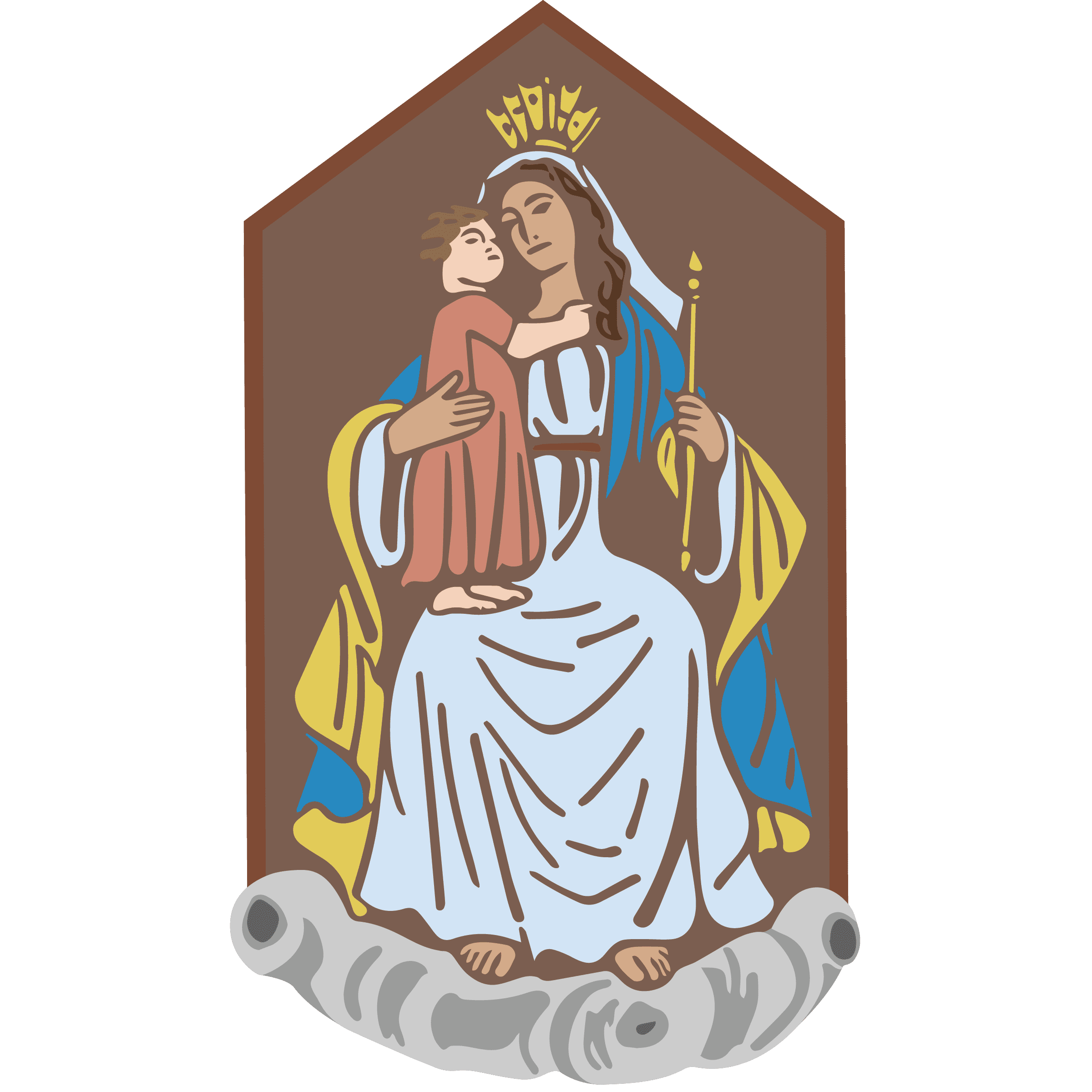
Jesus showed compassion toward the sick and suffering. The sacrament of the Anointing of the Sick extends God’s grace of spiritual strength, peace, and courage to overcome the difficulties that go with facing a serious health challenge or advanced age.
Schedule an Anointing
Anointing is available by appointment during the week, or upon request during the weekend. Please contact us if you or a loved one would like to receive the sacrament.
Emergency Anointing
In case of emergencies, please call our parish offices and select the “emergency line” option (630) 851-3444
For further questions and information, please reach out to
Parish Office
parishoffice@olmercy.com
(630) 851-3444
“Is any among you sick? He should summon the presbyters of the Church, and they should pray and anoint him with oil in the Name of the Lord.”
James 5:14
Difference between Anointing of Sick and “Last Rites”
Many people wonder, “What is the difference between Anointing of the Sick and Last Rites?” Although they are closely related, they are not the same. Understanding this distinction helps us appreciate both the sacrament of Anointing of the Sick and the special Apostolic Blessing known as the Last Rites.
Anointing of the Sick
When we think of the Anointing of the Sick, we often assume it is only for those nearing the end of life due to illness or old age. However, this sacrament is not just for those final moments. It is a beautiful opportunity to receive God’s grace and healing at any time when we are physically, mentally, or emotionally afflicted. Whether you are preparing for surgery or struggling with a chronic condition, the Anointing of the Sick can provide spiritual strength, peace, and courage during these challenging times.
As St. James reminds us, the sick are to be anointed to lift them up and save them (James 5:14-15). The Church encourages all who are seriously ill or elderly to seek this sacrament, so they may receive the healing and grace offered by the Holy Spirit.
You may wonder, “How do I know if I or my loved one should be anointed?” A simple, thoughtful judgment is all that is needed. For example, a person can be anointed before surgery, even if the surgery isn’t life-threatening. Elderly individuals may be anointed even without a specific illness, and children can receive this sacrament if they are mature enough to understand its significance. If you are unsure, don’t hesitate to ask our priests for guidance.
The Anointing of the Sick can be received more than once, especially if someone has a chronic illness or if their condition worsens. This sacrament offers special graces, including union with Christ’s suffering, strength to endure illness with faith, forgiveness of sins, and, if it is God’s will, restoration to health. If death is near, it helps prepare the soul for eternal life.
When Anointing Becomes Last Rites
If the Anointing of the Sick is administered when someone is nearing death, it is often accompanied by the Apostolic Blessing, commonly referred to as Last Rites. This blessing brings peace and a plenary indulgence, offering comfort to the person in their final moments.
Does someone have to be dying to receive the Anointing of the Sick? No. As the Catechism explains, this sacrament is for anyone facing serious illness or old age (CCC 1514). It provides spiritual help, even if physical healing is not guaranteed.
Please note that this sacrament is only for the living. If your loved one has already passed, we can still offer prayers for their soul, but the sacrament itself cannot be administered to the deceased.
Last Rites: The Apostolic Blessing
The Last Rites include the Apostolic Blessing, a special prayer that grants a plenary indulgence, which removes the temporal punishment due to sin. This blessing is usually given alongside the Anointing of the Sick when someone is approaching death. The prayer asks God to open the gates of paradise and welcome the dying person into eternal joy: “Through the holy mysteries of our redemption may almighty God release you from all punishments in this life and in the life to come. May He open to you the gates of paradise and welcome you to everlasting joy.”
Even when a priest is unavailable, the Church offers comfort. If someone who is near death has lived a life of prayer, they can receive a plenary indulgence, provided they have prayed regularly during their life. In this way, the Church ensures that no one faces death alone.
Extreme Unction
You may have heard the term “Extreme Unction,” an older name for the Anointing of the Sick. It was once more commonly used when the sacrament was only administered to those in immediate danger of death. Today, however, we understand that this sacrament is not just for life’s final moments but also for those who are gravely ill, preparing for surgery, or growing frail with age.

